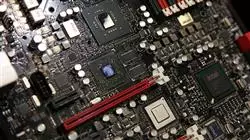University certificate
The world's largest faculty of information technology”
Introduction to the Program
This Postgraduate diploma will allow you up to date your knowledge in Human Intelligent Systems in a practical way, 100% online, without renouncing to the maximum educational rigor”

This program is aimed at those interested in attaining a higher level of knowledge Intelligence Systems. The main objective of this Postgraduate diploma is for students to specialize their knowledge in simulated work environments and conditions in a rigorous and realistic manner so that they can later apply it in the real world.
This program will prepare scientifically and technologically, as well as to develop the professional practice of software engineering, with a transversal and versatile approach adapted to the new technologies and innovations in this field. Students will gain extensive knowledge Intelligence Systems from professionals in the field.
The professional must Seize the opportunity to take this educational program in a 100% online format, without having to give up obligations, which will make it easier to continue studying. Up to date your knowledge and get a Postgraduate diploma to continue growing personally and professionally.
This program will enhance your skills and update your knowledge of Intelligent Systems”
This Postgraduate diploma in Intelligent Systems contains the most complete and up-to-date program on the market. The most important features include:
- Development of 100 simulated scenarios presented by experts in Information Systems
- Its graphic, schematic and practical contents, with which they are conceived, gather scientific and practical information on Information Systems
- News on the latest developments in Information Systems
- It contains practical exercises where the self-assessment process can be carried out to improve learning
- Interactive learning system based on the case method and its application to real practice
- All of this will be complemented by theoretical lessons, questions to the expert, debate forums on controversial topics, and individual reflection assignments
- Content that is accessible from any fixed or portable device with an Internet connection
Learn about Intelligent Systems with this intensive program from the comfort of your home”
It includes in its teaching staff professionals belonging to the field of education, who bring to this program their work experience, in addition to recognized specialists belonging to reference societies and prestigious universities.
Thanks to its multimedia content developed with the latest educational technology, they will allow the professional a situated and contextual learning, that is to say, a simulated environment that will provide an immersive learning programmed to prepare in real situations.
The program design is based on Problem-Based Learning, through which teachers must try to solve the different professional practice situations that arise throughout the course. To do so, the professional will be assisted by an innovative, interactive video system created by renowned experts in Intelligent Systems with extensive teaching experience.
Take advantage of the latest educational technology to up to date on Intelligent Systems from the comfort of your home"

Learn about the latest techniques in Intelligent Systems from experts in the field"
Why study at TECH?
TECH is the world’s largest online university. With an impressive catalog of more than 14,000 university programs available in 11 languages, it is positioned as a leader in employability, with a 99% job placement rate. In addition, it relies on an enormous faculty of more than 6,000 professors of the highest international renown.

Study at the world's largest online university and guarantee your professional success. The future starts at TECH”
The world’s best online university according to FORBES
The prestigious Forbes magazine, specialized in business and finance, has highlighted TECH as “the world's best online university” This is what they have recently stated in an article in their digital edition in which they echo the success story of this institution, “thanks to the academic offer it provides, the selection of its teaching staff, and an innovative learning method aimed at educating the professionals of the future”
A revolutionary study method, a cutting-edge faculty and a practical focus: the key to TECH's success.
The most complete study plans on the university scene
TECH offers the most complete study plans on the university scene, with syllabuses that cover fundamental concepts and, at the same time, the main scientific advances in their specific scientific areas. In addition, these programs are continuously being updated to guarantee students the academic vanguard and the most in-demand professional skills. In this way, the university's qualifications provide its graduates with a significant advantage to propel their careers to success.
TECH offers the most comprehensive and intensive study plans on the current university scene.
A world-class teaching staff
TECH's teaching staff is made up of more than 6,000 professors with the highest international recognition. Professors, researchers and top executives of multinational companies, including Isaiah Covington, performance coach of the Boston Celtics; Magda Romanska, principal investigator at Harvard MetaLAB; Ignacio Wistumba, chairman of the department of translational molecular pathology at MD Anderson Cancer Center; and D.W. Pine, creative director of TIME magazine, among others.
Internationally renowned experts, specialized in different branches of Health, Technology, Communication and Business, form part of the TECH faculty.
A unique learning method
TECH is the first university to use Relearning in all its programs. It is the best online learning methodology, accredited with international teaching quality certifications, provided by prestigious educational agencies. In addition, this disruptive educational model is complemented with the “Case Method”, thereby setting up a unique online teaching strategy. Innovative teaching resources are also implemented, including detailed videos, infographics and interactive summaries.
TECH combines Relearning and the Case Method in all its university programs to guarantee excellent theoretical and practical learning, studying whenever and wherever you want.
The world's largest online university
TECH is the world’s largest online university. We are the largest educational institution, with the best and widest online educational catalog, one hundred percent online and covering the vast majority of areas of knowledge. We offer a large selection of our own degrees and accredited online undergraduate and postgraduate degrees. In total, more than 14,000 university degrees, in eleven different languages, make us the largest educational largest in the world.
TECH has the world's most extensive catalog of academic and official programs, available in more than 11 languages.
Google Premier Partner
The American technology giant has awarded TECH the Google Google Premier Partner badge. This award, which is only available to 3% of the world's companies, highlights the efficient, flexible and tailored experience that this university provides to students. The recognition as a Google Premier Partner not only accredits the maximum rigor, performance and investment in TECH's digital infrastructures, but also places this university as one of the world's leading technology companies.
Google has positioned TECH in the top 3% of the world's most important technology companies by awarding it its Google Premier Partner badge.
The official online university of the NBA
TECH is the official online university of the NBA. Thanks to our agreement with the biggest league in basketball, we offer our students exclusive university programs, as well as a wide variety of educational resources focused on the business of the league and other areas of the sports industry. Each program is made up of a uniquely designed syllabus and features exceptional guest hosts: professionals with a distinguished sports background who will offer their expertise on the most relevant topics.
TECH has been selected by the NBA, the world's top basketball league, as its official online university.
The top-rated university by its students
Students have positioned TECH as the world's top-rated university on the main review websites, with a highest rating of 4.9 out of 5, obtained from more than 1,000 reviews. These results consolidate TECH as the benchmark university institution at an international level, reflecting the excellence and positive impact of its educational model.” reflecting the excellence and positive impact of its educational model.”
TECH is the world’s top-rated university by its students.
Leaders in employability
TECH has managed to become the leading university in employability. 99% of its students obtain jobs in the academic field they have studied, within one year of completing any of the university's programs. A similar number achieve immediate career enhancement. All this thanks to a study methodology that bases its effectiveness on the acquisition of practical skills, which are absolutely necessary for professional development.
99% of TECH graduates find a job within a year of completing their studies.
Postgraduate Diploma in Intelligent Systems
Intelligent Systems have become an essential tool for companies and organizations of all kinds, as they allow automating processes and optimizing resources more efficiently. They are capable of learning and adapting to new situations, and can be applied in a wide variety of areas, such as data analysis, robotics, computer security, among others. This Postgraduate Diploma in Intelligent Systems provides you with the necessary skills and knowledge to design, implement and maintain intelligent systems in different fields. Therefore, this degree is ideal for anyone interested in new technologies and who wishes to develop their professional career in a highly demanded and constantly evolving field. The knowledge you will acquire in this academic experience will open the doors to numerous professional opportunities in the future.
This is your chance to specialize in a field that is currently in high demand!
This Postgraduate Diploma will allow you to delve in depth into aspects such as Artificial Intelligence, neural networks, machine learning, natural language processing and other fundamental concepts for the construction of cutting-edge Intelligent Systems. The Postgraduate Diploma is 100% online, which allows you to study at your own pace and from anywhere with internet access. It also has didactic materials in multimedia formats such as video or interactive summary, which will help you to better understand the concepts and applications of these systems. Its design is the work of prestigious experts in this field, who will pour into the degree all the knowledge obtained throughout their exquisite professional careers.
"""







